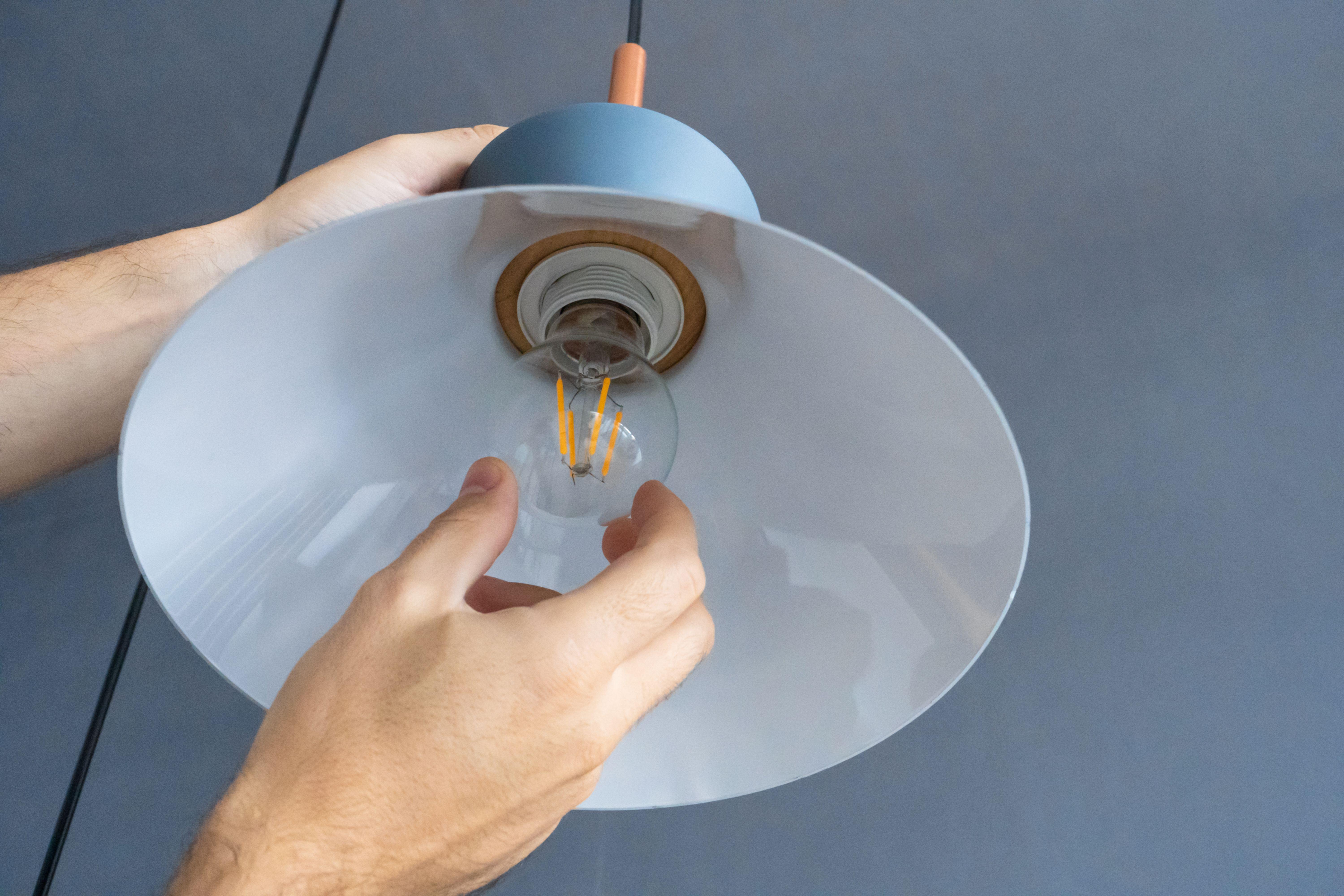Lights flickering in your home might seem like a cause for concern, especially if you’re unfamiliar with how home electrical systems work. While flickering lights can stem from a major electrical problem, it is more likely that the issue is related to the bulb or switch. However, it is essential to identify the cause of the flickering lights so you can rule out any serious electrical issues.
Learn the most common causes of flickering lights and how to fix them, as well as when it’s advisable to call an electrician.
6 Potential Causes of Flickering Lights
Before calling an electrician, try troubleshooting these potential causes of flickering lights.
1. Bulb Issues
One of the most common causes of flickering lights is an issue with the bulb. Fortunately, bulb issues are also the easiest fix.
Solution: If you suspect the light bulb is burning out, you can easily test your theory by replacing the light bulb. If the new one doesn’t flicker, you’ve likely solved the problem.
2. Switch Issues
Light switches see a lot of use. While premium switches may last a lifetime, budget light switches are likely to fail over time. In this case, you might notice the lights flicker when you touch the switch.
Solution: If you suspect the light switch is causing the flickering lights, replacing the switch should solve the problem. To do so, turn off the electricity and the circuit breaker box, remove the switch plate, and uninstall the light switch. Wire and install the new light switch exactly like the old one, reinstall the switch plate, and restore the power.
3. Fixture Issues
Less commonly, the light fixture itself may be to blame. If there are loose connections or corrosion in the fixture, the lights may flicker.
Solution: You can attempt to repair the fixture by fixing the connections or removing corrosion, especially if it’s a premium fixture. However, it may be more beneficial to replace cheaper light fixtures.
4. Incompatible Bulb or Dimmer Switch
If you’ve ever shopped for light bulbs, you may have noticed language on the box referring to dimmer compatibility. This is because some types of bulbs and dimmer switches don’t play well together. If you install a light bulb that’s incompatible with the light switch, it will likely flicker as a result.
Solution: To ensure your light bulb is compatible with your switch, check the bulb’s specifications before purchasing a replacement.
If you’re having trouble finding a light bulb that won’t flicker due to dimmer incompatibility, your best bet is to try a traditional incandescent light bulb. However, they may be difficult to find in some areas due to government restrictions on energy usage. Even LED light bulbs that specify dimmer compatibility can sometimes flicker when tied to a dimmer switch.
5. Wiring Issues
Sometimes, the fixture, the bulb, and the switch may all be in good, working condition, but the wiring is to blame for the flickering lights. The wires could be worn or damaged, but it’s more likely that they are loose, causing an intermittent connection, which results in a flicker.
Solution: With the power turned off, inspect the wiring and all relevant connections, including those at the switch, circuit breaker, and light fixture.
6. Electrical Load Issues
If you notice the lights flickering whenever other appliances turn on, such as a vacuum, dishwasher, blow dryer, or other power-hungry products, it’s likely because you’re running them on the same circuit as the lights, causing an excessive electrical load on the circuit.
Whenever these devices turn on, they draw a large amount of power, which causes the current running to the lights to fade, resulting in flickering.
Solution: If the circuit is overloaded, move the high-power appliance to a different circuit. For something like a blow dryer or vacuum, unplug it and plug it into a different outlet. Install a dedicated circuit for large, permanently installed appliances, such as dishwashers.
When It’s Time to Call a Professional Electrician
If none of these solutions resolve your flickering lights or if the lights are accompanied by buzzing sounds, burning smells, heat around the fixture or outlets, or frequently tripping breakers, contact a professional electrician immediately.
You should also consider professional help if multiple lights in your house are flickering and the issue isn’t isolated to a single fixture or circuit. If you haven’t already, a professional will likely instruct you to cut the power at the breaker until the problem can be remedied.



